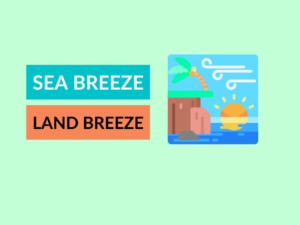The Difference between Sea and Ocean
Welcome to our informative article that explores the intriguing distinctions between two of nature’s massive bodies of water – the sea and the ocean. By the end of this comprehensive guide, you will have a clear understanding of their definitions, examples, uses, and, most importantly, ten key differences. So, let’s dive in!
What is Sea?
The sea is a vast saltwater body that is partially enclosed by land. It is smaller than an ocean and is often connected to it. Seas are usually found along the coasts and can be both shallow and deep. They are influenced by the tides and typically have a higher salt content compared to the ocean.
Examples of Seas
There are numerous seas around the world, some of the popular ones include the Mediterranean Sea, the Caribbean Sea, the Red Sea, and the Arabian Sea.
Uses of Seas
Seas serve several important purposes for humans. They provide a means of transportation, contribute to economic activities such as fishing and tourism, and act as barriers by offering protection to coastal areas from strong tides and storms.
What is Ocean?
An ocean is an extensive saltwater body covering a significant portion of the Earth’s surface. Unlike seas, oceans are vast and open, with no specific boundaries. They are also deeper than seas and have a more stable and consistent composition of salt content.
Examples of Oceans
Our planet is home to five major oceans, namely the Pacific Ocean, the Atlantic Ocean, the Indian Ocean, the Southern Ocean, and the Arctic Ocean.
Uses of Oceans
Oceans play a crucial role in maintaining the Earth’s climate and act as a vital habitat for a diverse range of marine life. Apart from supporting fishing and providing transport routes, oceans are also significant sources of natural resources such as oil, natural gas, and minerals.
Differences Table
| Difference Area | Sea | Ocean |
|---|---|---|
| Size | Smaller | Larger |
| Boundaries | Has specific boundaries | No specific boundaries |
| Depth | Shallow and deep | Deeper |
| Tides | Influenced by tides | Less influenced by tides |
| Salt Content | Relatively higher | More consistent |
| Connected To | Often connected to an ocean | Not connected; interconnected |
| Examples | Mediterranean Sea, Caribbean Sea | Pacific Ocean, Atlantic Ocean |
| Human Activities | Fishing, tourism | Fishing, transport routes, resource extraction |
| Climate Influence | Less influence on climate | Significantly influences climate |
| Size of Waves | Smaller waves | Generally larger waves |
Conclusion
In summary, seas and oceans are both essential components of our planet’s water bodies, but they differ in size, boundaries, depth, tides, salt content, and examples. Seas are often connected to an ocean, have higher salt content, and are more influenced by tides. Oceans, on the other hand, are vast, open, and deeper, with consistent salt content. They significantly influence climate and provide a habitat for diverse marine life.
Knowledge Check
Now, let’s test your understanding of the differences between seas and oceans. Can you answer these ten questions?
- Which is larger, a sea or an ocean?
- Do seas have specific boundaries?
- Are oceans deeper than seas?
- Which water body has more consistent salt content, sea or ocean?
- What are some examples of seas?
- What are some examples of oceans?
- What activities are typically associated with seas?
- What activities are typically associated with oceans?
- Do seas significantly influence climate?
- Which generally has larger waves, sea or ocean?
An ocean is larger than a sea.
Yes, seas have specific boundaries.
Yes, oceans are deeper than seas.
Oceans have more consistent salt content.
Some examples of seas include the Mediterranean Sea and the Caribbean Sea.
Some examples of oceans include the Pacific Ocean and the Atlantic Ocean.
Fishing and tourism are commonly associated with seas.
Fishing, transport routes, and resource extraction.
No, seas have less influence on climate compared to oceans.
Oceans generally have larger waves compared to seas.
Related Topics
If you found this article informative, you may also be interested in learning about other aspects of marine ecosystems such as coral reefs, marine biodiversity, and the impact of climate change on the oceans.


